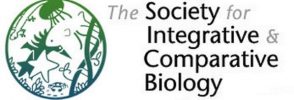Contents
Message from the Chair
Jon Allen, Chair.DIZ@sicb.org
Dear DIZ,
We have a lot to discuss in this newsletter, but I will try my best to keep it brief and stick to the highlights. First, the annual meeting in Phoenix, AZ is just around the corner! I know that for many of us there is still great uncertainty about traveling and in-person events like this. Personally, I am planning to attend in person, but I also know that many of our members will want to take advantage of the new SICB+ format to attend virtually. However you plan to present or attend, it will be good to have you. Hopefully the virtual format will provide some benefits by increasing participation in the conference well outside of the usual in-person attendees. If you haven’t registered yet, keep in mind that the early bird discounted rate is available until December 1st.
Second, you probably have noticed the changes to the SICB website. If you find issues (I still find the occasional broken link), please alert me or Molly Jacobs, our excellent communications editor (comm.editor@sicb.org). DIZ has some images and text populating our portion of the website now, but we could always use more. If you have images that you want featured on the DIZ pages, please reach out. We would love to feature them.
On the topic of communications, thanks to Rebecca Varney and Anna Klompen, DIZ now has a twitter presence! The new account will tweet out news related to the annual meeting and other big happenings in invertebrate zoology of which our membership should be aware. As of October, we have about 200 followers, which is a great start. If you’re not already following the account, please start (@SICB_DIZ). If you have exciting news from your lab that you want us to share, tag @SICB_DIZ in your tweets.
Normally in this space I would also be pleading with you to submit items for the Libbie Hyman auction. However, in consultation with DIZ leadership and our co-organizers of the auction (Bruno Pernet and Anna Klompen) we have decided to postpone the auction for one year until the Austin, TX meeting in 2023. If you had planned to donate items for the auction, please hang onto them and bring them (or send them) to Austin. Our hope is to have an especially robust auction in 2023 when we hope all restrictions on in-person socials will be lifted and we can gather together in celebration of supporting this fund.
I also need to thank all of the mentors and students who submitted abstracts for the best student presentation sessions for posters and talks. With help from Karen Chan and Anne Boettger we have selected 8 outstanding students for the best student oral presentation session. Once the final program is announced these presentations should all be linked in a single session for ease of attending for our DIZ members. Mentioning Karen’s name reminds me that, as always, we are constantly looking for excellent and diverse symposia proposals and, as our Program Officer, Karen is here to help! At the annual meeting is a great time for interested members to speak with us about what makes a successful proposal. Also at the meeting, we will be looking to recruit excellent candidates to take the reins from Karen as DIZ Program Officer. This is a critical position in DIZ leadership and we have been lucky to have Karen serve in this role. If you would like to be considered, or know someone who might be interested in being nominated, please let me know. We will form a nominating committee before the meeting with the hope to identify interested candidates for a spring vote.
Lastly, DIZ needs to extend tremendous gratitude to our outgoing Secretary, Justin McAlister. Justin will serve through the end of the 2022 meeting and then pass the torch to our new secretary, Kelly Dorgan. Justin has been a rock for DIZ for many years and especially these last few years as he has kept the rest of us on task for newsletters and all other manner of DIZ business. I look forward to celebrating and thanking Justin in person in Phoenix and I can’t wait to see many of you there as well!
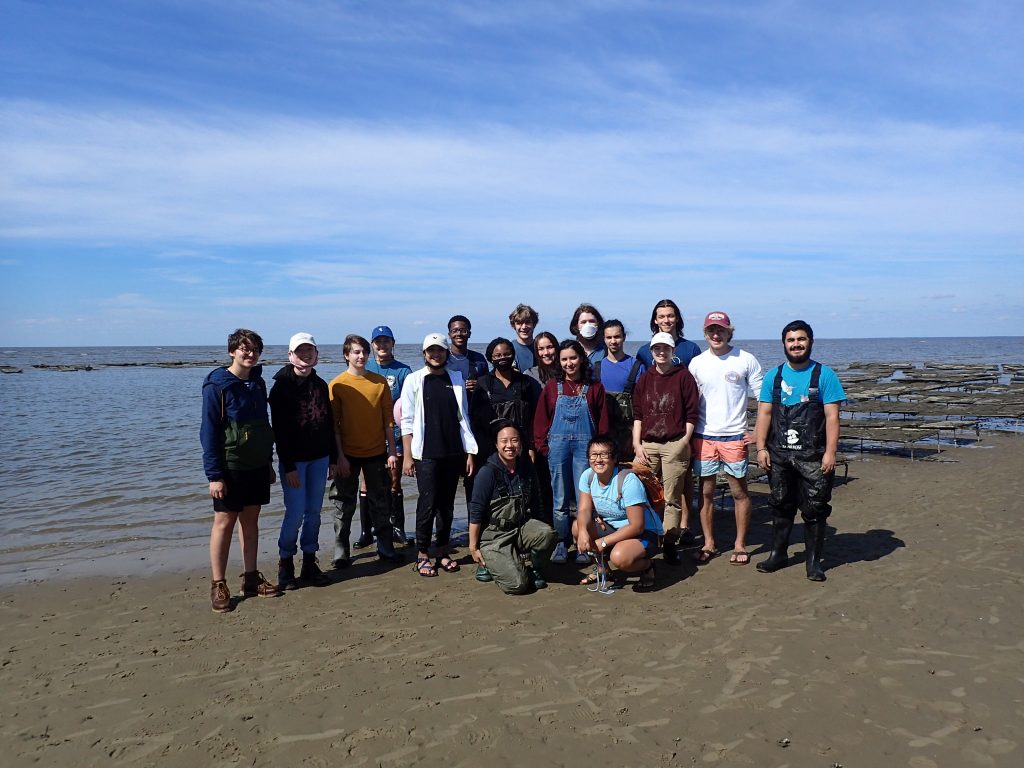
Message from the Program Officer
Karen Chan, DPO.DIZ@sicb.org
Dear DIZ friends,
Time flies; fall is here! It is now time for me to share with you what exciting programs we have to offer for SICB 2022. I would like to highlight the special contributed session “Honoring the Life and Legacy of Dr. John Pearse: Marine Ecology and Evolutionary Biology” on Jan 5. Prof. Pearse was a rock for SICB and DIZ and touched the lives of many. We would love to see you at the talks. Our division is sponsoring three society-wide symposiums, which are “DNA metabarcoding across disciplines: sequencing our way to greater understanding across scales of biological organization,” “Lesser known transitions: organismal form and function across abiotic gradients,” and “Open source solutions in experimental design.” We have also received several interesting symposium proposals for the 2023 meeting in Austin.
With the ongoing pandemic and climate crisis, SICB+ provides an alternative way for you to participate in our annual meeting. Having said that, a virtual conference cannot replace the fantastic social interactions we share in person. The meeting venue in Phoenix is spacious and has COVID protocols in place and the SICB Executive Committee is paying close attention to federal and state guidelines. So, if you plan to attend the meeting, please don’t forget to sign up now for the meeting. The registration for SICB+ only participants will open later.
Special thanks to Dr. Anne Boettger and our chair, Dr. Jonathan Allen, who helped us select the finalists for our Best Student Oral Presentation Award. Like other divisions, our BSP entries are now programmed into one single session (Jan 4, 2022). Please also put this session onto your schedule, to come to support our students.
As we look forward to meeting each other face-to-face, I would like to encourage you to consider submitting a symposium proposal for future SICB conferences. Symposium organization is a great way to build collaborations and push your field forward. As the DPO, I would be honored to help you craft your proposals.
These continue to be challenging times, but our love of science and invertebrates will carry us through. Thank you for what you are doing to keep yourself, your loved ones, and your community safe.
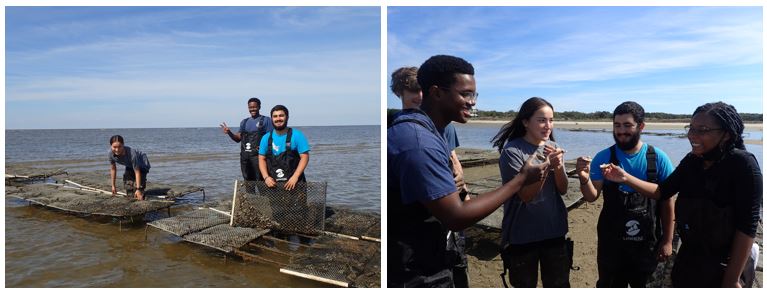
Message from the Secretary
Justin McAlister, secretary.diz@sicb.org
Dear members of the DIZ,
Our divisional newsletters are getting longer (across all SICB Divisions) and some groups are coming up with new ways of updating members using formats that are more streamlined. As this is my last newsletter as DIZ Secretary I am maintaining the familiar format and will leave a newsletter overhaul up to Kelly Dorgan, our incoming Secretary. Kelly will take over from me after this upcoming Annual Meeting. The other officers have updated you on items of importance to DIZ and I will avoid repeating them here. For now, I will just thank you for your continued love of invertebrates, for finding new ways to excite students about these fascinating creatures, and for allowing me to serve this Division as your Secretary for the past 3 years.
Message from the Student and Postdoc Representative
Rebecca Varney, varney@ucsb.edu
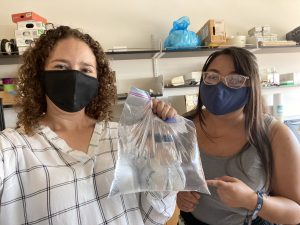
Photo Credit: Rebecca Varney
It’s Fall, SICB abstracts are submitted, and I am so excited to see some of you in person again in January! As I reserve my hotel room in Phoenix and remind younger lab-mates to sign up for Charlotte Mangum (graduate students, I’m looking at you!), I find myself practically giddy.
A fundamental facet of academia, especially at our level as graduate students and postdocs, is motion. We work in positions that are temporary; we cannot put down roots. We make lifelong friends and then scatter across the world as we move forward. I am grateful in some ways for the digital year(s) that gave me practice connecting to people across the world, and I know my future collaborations will be empowered by my newfound willingness to figure out time zones and e-mail “let’s zoom” to a different continent. As I moved to my postdoc during COVID, I was able to keep in touch with the friends I left behind more easily. I meet with a zoom writing group made of incredible people I met at MBL Woods Hole Embryology (from 5 states). I have “coffee” and “brunch” with people in Florida, and Denmark. So don’t get me wrong, I love Zoom.
But then I get a mentee into the lab and they get to interact with a live animal for the first time. I get to watch their face as they poke a jellyfish and hear their gasp when they see an ostracod bioluminesce. I get to teach somebody to extract DNA for a genome and see their face light up over a Qubit. I get to sit on a bench and brainstorm for hours with my advisor, because our ears don’t get tired from headphones. I am so profoundly grateful for all the little things every day.
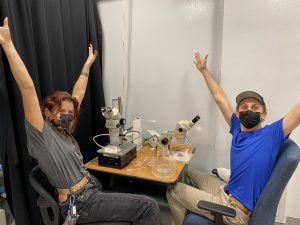
It is with that mindset that I look forward to SICB. As a person who gets to go and see my extended scientific family again. As a mentor who gets to watch my mentees exploring their first conference, knowing the SICB community will welcome them with open arms (from 6 feet away, perhaps). I think of the hundred moments of SICBs past that happen in elevators, hallways, and coffee shops. That’s what I missed, last year. I can’t wait to bump into people, end up having lunch together by force of proximity, start a conversation because of a shrimp skirt, or be instant friends because we saw the same talk on echidnas.
Inverts are the best, but I’m looking forward to seeing all of you vertebrates, too!
Message from the Libbie Hyman Scholarship Selection Committee Chair
Abby Cahill, acahill@albion.edu
Hello fellow invertebrate-lovers! I am excited to be starting my role as the chair of the Libbie Hyman Scholarship Selection Committee. I need to thank Jennifer Burnaford for her long tenure of service in this role (ten years!), during which she oversaw the awarding of numerous Hyman scholarships to support students’ first field station experience. Thanks also to Jennifer for onboarding me gently last spring so I could see how the selection process works, and to Will Jaeckle and Shanna Hanes for serving on the committee. Ruedi Birenheide provided critical support for the web application process.
Thanks also to all of you for your continued financial support of the Hyman Scholarship Fund through your generous donations. You can see based on the students’ reports below that these scholarships have had a large impact on their learning and research. Many of us can think of a similar transformational experience in our own career. For my part, that first field experience happened at the Shoals Marine Lab, and really affected my path through science. Field station costs are ever-higher, and the scholarship makes a real difference to students.
To contribute to the fund, click on ‘Donate to SICB’ on the SICB home page or send donations to: Libbie H. Hyman Memorial Scholarship Fund, c/o The Society for Integrative and Comparative Biology, 950 Herndon Parkway, Suite 450, Herndon, VA 20170, USA. Checks should be made payable to SICB and marked as a “Contribution to the Libbie H. Hyman Memorial Scholarship Fund.” All contributions are tax deductible.
Also keep an eye out regarding our auction (postponed to 2023 in Austin) to support the scholarship fund. Another way to contribute is by donating items to the auction; proceeds go to the scholarship fund.
And lastly, encourage students to apply for the scholarship! The deadline for 2022 is February 4, and the application will be online very soon. If you or your students have questions about the application process, please check out this website for more information, feel free to contact me via email.
Without further ado, here are the reports from our three scholarship recipients.
Charlotte Benedict, Ohio State University
Charlotte was our 2020 recipient but was unable to complete her project last year due to COVID-related cancellations.
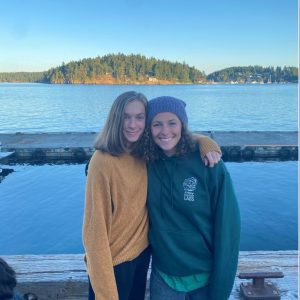
I am so grateful for the opportunity to study at University of Washington’s Friday Harbor Laboratories thanks to the Libbie Hyman Memorial Scholarship. I participated in the marine invertebrate zoology course for five weeks, during the first summer of my Ph.D. Friday Harbor was my first opportunity for and training in marine field work and was an incredibly valuable learning experience.
The Pacific Northwest is home to a very biodiverse host of marine invertebrates, and I am hugely grateful for the opportunity to live and study at Friday Harbor to experience this first-hand. I had the unique experience as a marine biology student to spend time every day working outside, collecting local species and tide pooling, then studying our finds with other students who were just as curious and excited as I was.
The extensive resources available to students through Friday Harbor gave me the opportunity to conduct a project using x-ray micro-computed tomography to scan local species of sea anemones.
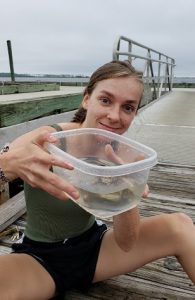
Several students and I worked together to develop a method of micro-CT for soft-tissue invertebrates and gather preliminary data for a comparative morphology project that I will be presenting at the upcoming SICB conference. I wouldn’t have had the opportunity to develop this project or work first-hand with micro-CT without the opportunities provided by Friday Harbor Laboratories.
In addition to the resources available for research and education, the collaborative and community environment of Friday Harbor is what made the experience so overwhelmingly positive. The student body was engaged and curious, and the professors and researchers were enthusiastic to teach. Our student cohort became close friends over the duration of our course, and I made friends I will continue to stay in touch with. I owe the Libbie Hyman Memorial Scholarship an enormous thank you for this wonderful experience.
John Deitsch, Cornell University
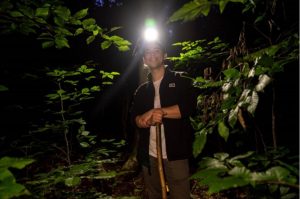
This summer I had the privilege of working and performing research at Hubbard Brook Experimental Forest in New Hampshire’s beautiful White Mountains. This was my first significant experience with field work and ecological research at a field site. I was a member of a crew working on a long-term Black-throated Blue Warbler population study and performed my own independent research project for my Honors Thesis at Cornell University. My research project is investigating the impact of artificial light at night (ALAN) on caterpillars through predation and parasitism pressure from other arthropods. ALAN is increasingly being recognized as a critical threat to insect populations. Thanks to the generous support of the Libbie H. Hyman Scholarship, I was able to execute a manipulative field experiment this summer to collect data to answer my research question.
My research project this summer was a great success. Thanks to the Libbie H. Hyman Scholarship, I was able to experimentally illuminate four study plots for 8 weeks while collecting data on the response of local arthropod communities. I sampled arthropod abundance and diversity with Malaise traps and yellow pan traps. These sampling methods were highly effective, catching over ten thousand individuals, including around 1,500 Ichneumonid wasps, one of the taxa I was most interested in sampling! I measured predation rates on caterpillars with plasticine clay caterpillar models, a simple yet proven method to passively measure relative predation rates across different treatment types. This technique proved to be a success, with many of the models showing signs of attack from predators and parasitoids.
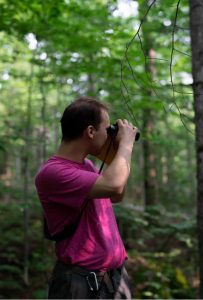
In addition to research, I learned and practiced so many field skills this summer. Some of my favorites were Black-throated Blue Warbler nest searching, monitoring, and videography; banding Black-throated Blue Warbler nestlings (including taking blood samples); and a variety of arthropod sampling and surveying methods (Malaise traps, Berlese funnel traps, and caterpillar transect lines). I gained experience forming hypotheses and designing experiments and I even practiced such glamorous skills as data entry, proofing, and management.
In addition to field work and research, I had the chance to engage with the Hubbard Brook research community. I attended weekly science nights where the Bird Crew met other researchers and discussed anything from geochemistry to bio-acoustic monitoring. And when the forest could spare us, my fellow researchers and I ate pancakes, played card games, and listened to loons yodeling on the lake near our field lodging. This was an incredible fieldwork and research experience. I left Hubbard Brook with new friends and connections, several spreadsheets of data to analyze, and hundreds of photos and memories to look back on for the rest of my life. Thank you.
Taylor Naquin, Cal State Fullerton
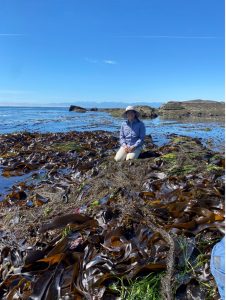
The Libbie H. Hyman Memorial Scholarship allowed me to have my first significant biological field research station experience at the University of Washington’s Friday Harbor Laboratories. I took the five-week Marine Invertebrate Zoology course over summer. Taking this course at FHL was one of the best experiences in my life. The sense of community at the labs and the amazing folks I got to work with really took my experience to the next level.
I took this course the summer before I started my master’s program at CSU Fullerton and was able to consider everything I learned in the course before building my thesis project. Our lab studies the rocky intertidal community and getting to learn hands-on about the invertebrates within the system I studied was invaluable. Additionally, being exposed to a completely different rocky intertidal at FHL than what I am used to in Southern California was incredible. I gained a broad understanding of marine invertebrates through the variety of field and lab activities throughout the course. During the course, we had the freedom to cultivate our own mini project, allowing us to follow our interests and explore different taxa. I chose to investigate different species within the genus Lottia that were commonly found around Friday Harbor. I collected the different species I could find and held them in one of the sea tables in our lab. My project coined the nickname “Limpet World,” because I had a fair amount in the lab, as I often would observe their morphological features closely. As students, we were able to examine any invertebrate we found interesting! Other cool things we had in our sea tables included slime stars, different nudibranch species, and huge barnacles.
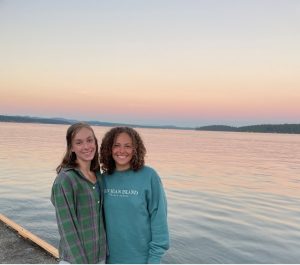
Not only was the knowledge gained from the class, but the other students in the course brought a wide range of personal knowledge and perspectives that supported the learning process. For many of us taking the course, this was our first academic/outside of home experience since the pandemic began. We were all so excited to be there with real people and with the precautions taken before and during our stay, we felt safe. Everyone’s enthusiasm to be there just added to the positivity of the experience. The facilities, the staff, the instructors, and students created a community that truly made FHL feel like home. Now, I have lifelong friends and future collaborators.
None of these things would have been possible for me without the honor of the Libbie H. Hyman Memorial Scholarship. I will always be grateful for this experience and look forward to returning to Friday Harbor Labs soon.
